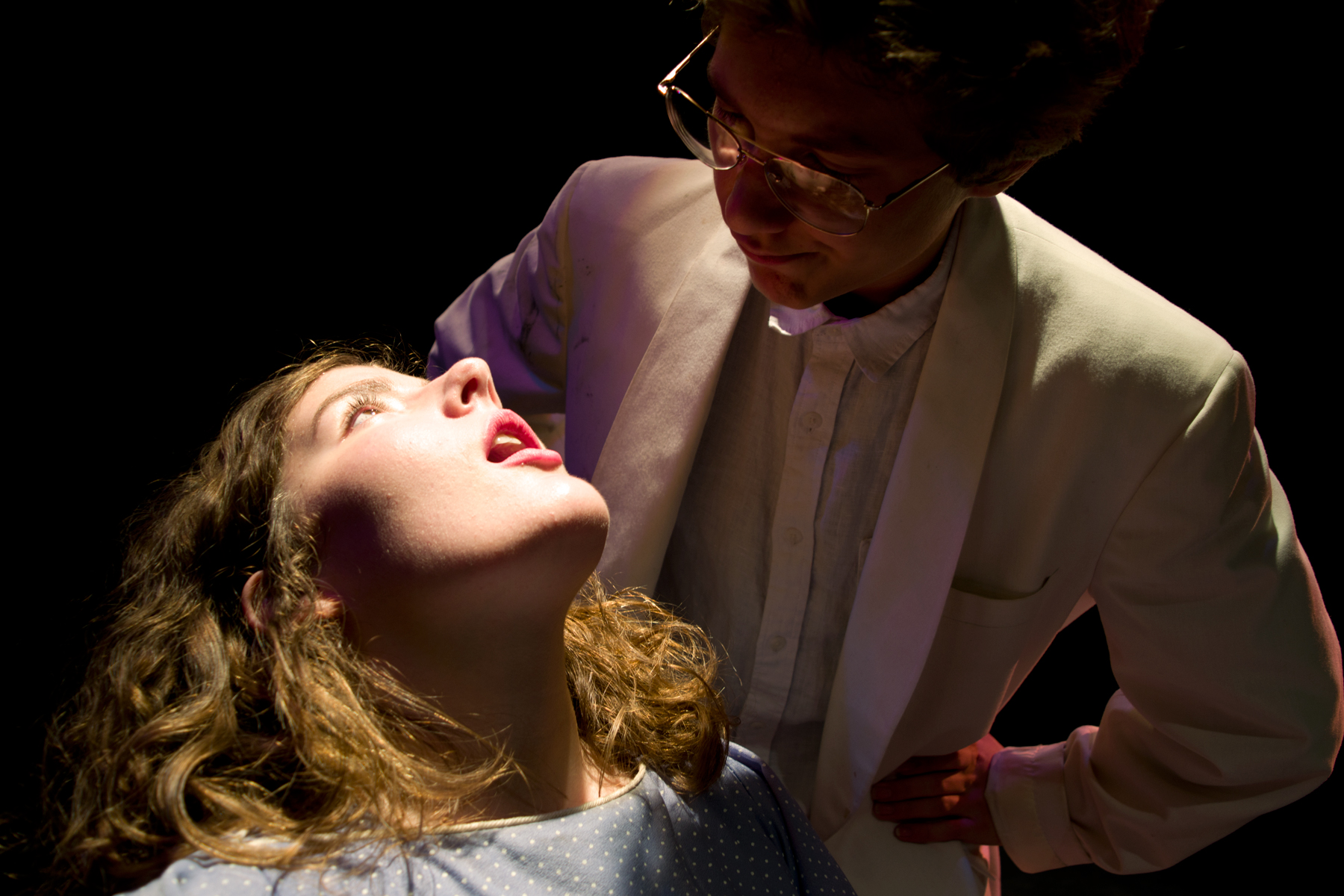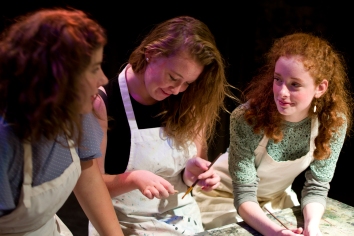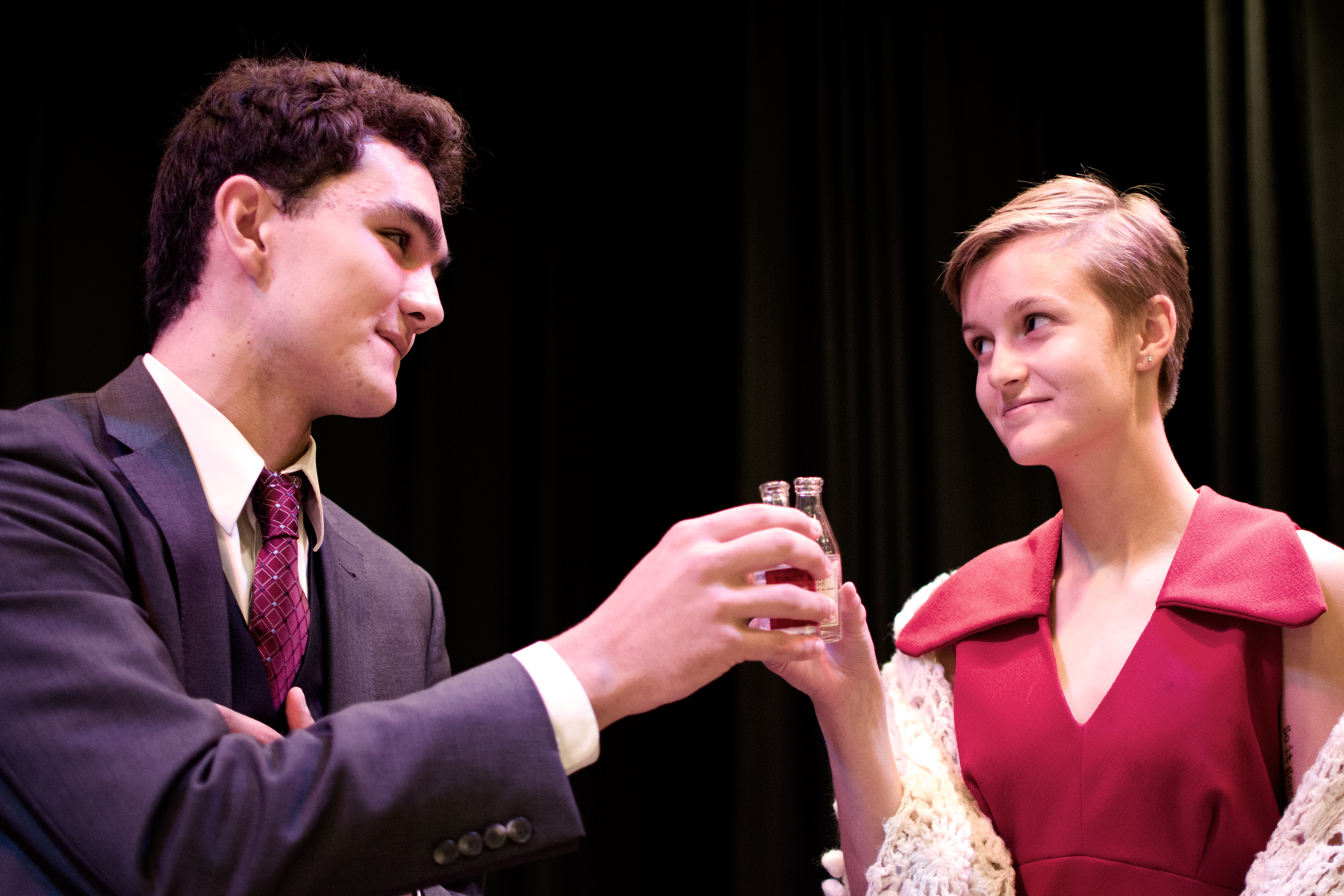 While home in Providence for Rosh Hashanah, I saw an elderly family friend in temple who asked me what I was working on. I told her that we were currently rehearsing Radium Girls, and when I started to tell her about it, she nodded and looked at me intently. Then she teared up. She knew the story, and not because she’d Googled “large cast plays for high school students.”
While home in Providence for Rosh Hashanah, I saw an elderly family friend in temple who asked me what I was working on. I told her that we were currently rehearsing Radium Girls, and when I started to tell her about it, she nodded and looked at me intently. Then she teared up. She knew the story, and not because she’d Googled “large cast plays for high school students.”
“I didn’t realize they made that into a play,” she said.
“Oh yes,” I said proudly. “Not a lot of high schools perform it.”
She touched my hand. “Well, I’m glad your students are. People need to hear this story. It’s so important.”

Important, I thought as I walked away. Important. I began to feel a tremendous responsibility to this woman, to the story of the play, and to all the Radium Girls. At its core, this is the story of women whose health, agency, and worth were marginalized and sacrificed for the sake of profit. As Grace Fryer, the play’s heroine, tells her fiancé, “They put lead screens in the laboratory for the technicians. Did they give us lead screens? 100 girls in a room and they’re going to spend that kind of money on us?”
Important? Without question. However, I often find theatre that is “important” can become precious and ultimately an idea rather than an emotionally and visually gripping experience. Actors risk being beleaguered by intellectual  implications which prevent them from playing the visceral heart of their story. I began to fear that our students would collapse under the weight of their responsibility to the history, and that the play would become preachy and heavy-handed. Then I remembered what my thesis advisor told me when I was writing a play about a daughter making a last-ditch effort to forge peace with her mother, who was dying of leukemia. “Don’t play the illness, he cautioned me, “play the moment.” I knew that was what we would need to do here. We would play the moment when Irene’s mouth starts to bleed, heralding her demise. We would play the moment when the factory president must confront his culpability in the poisonings and his inability to forgive himself. We would play the moment when Grace breaks her engagement because she knows she won’t live long enough to see her wedding day.
implications which prevent them from playing the visceral heart of their story. I began to fear that our students would collapse under the weight of their responsibility to the history, and that the play would become preachy and heavy-handed. Then I remembered what my thesis advisor told me when I was writing a play about a daughter making a last-ditch effort to forge peace with her mother, who was dying of leukemia. “Don’t play the illness, he cautioned me, “play the moment.” I knew that was what we would need to do here. We would play the moment when Irene’s mouth starts to bleed, heralding her demise. We would play the moment when the factory president must confront his culpability in the poisonings and his inability to forgive himself. We would play the moment when Grace breaks her engagement because she knows she won’t live long enough to see her wedding day.
How would we get there? We grapple with these questions every time we begin a new play. How will Tristan play forty-year-old serial killer Sweeney Todd? How will  Ainsley play Gus, a teenage boy who does not speak? How will Emma play Libby, a woman who survives a catastrophic fall? We answer these questions using other questions to guide us. We ask what our characters want, from whom they want it, and how they will get it. We ask about the dire consequences of not fulfilling our characters’ objectives. When we warm up, I tell my actors to plant these objectives in their bodies, to let these desires drive them down the paths their characters travel.
Ainsley play Gus, a teenage boy who does not speak? How will Emma play Libby, a woman who survives a catastrophic fall? We answer these questions using other questions to guide us. We ask what our characters want, from whom they want it, and how they will get it. We ask about the dire consequences of not fulfilling our characters’ objectives. When we warm up, I tell my actors to plant these objectives in their bodies, to let these desires drive them down the paths their characters travel.
I write this a week from opening night. As we finish painting our set, refocusing our lights, adjusting the levels on our sound cues, and setting our props, I see glimpses of our version of this story coming to fruition. I see our forthright, passionate, and empathic students collaborating, connecting, and creating, and I am so proud that we are able to share work that is brave, deeply-felt, and yes, important, here on the Waring stage.





